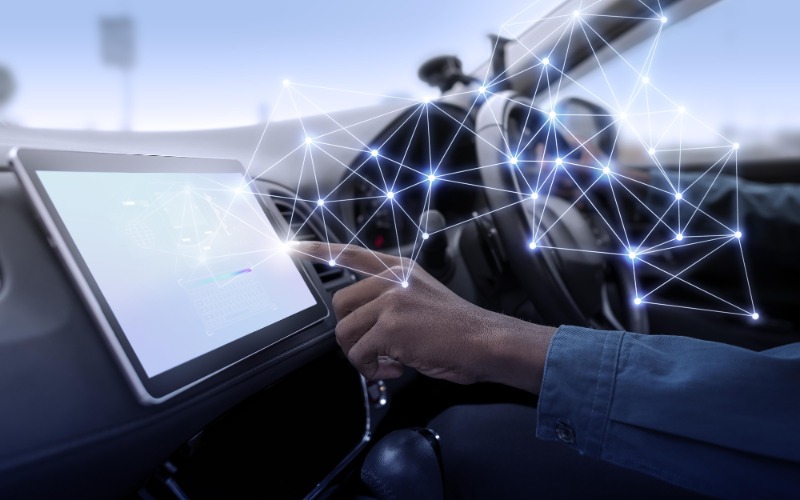Revolutionizing mobility: AI in self-driving cars

Self-driving cars have been a dream for ages; they are no longer a dream. Many companies have already launched autonomous driving features. With the integration of AI technology, they are now on the verge of becoming a reality at scale. Thanks to significant advances in AI, machine learning and cutting-edge technologies, self-driving cars are poised to change the world and the way we travel. However, there are challenges that need to be addressed before self-driving cars become a widely adopted reality, capable of completely transforming the way we travel.
The key to the success and safety of self-driving cars is reading and interpreting the environment. These vehicles rely heavily on advanced sensor technologies such as lidar, radar, and cameras to accurately perceive their surroundings. Lidar enables precise 3D mapping, radar excels in adverse weather conditions, and cameras capture valuable visual information. However, issues such as occlusions, low visibility, and sensor limitations can hamper perception systems. Engineers and researchers are widely using cutting-edge approaches such as simulation-based learning, sensor fusion, and deep learning to improve the perception capabilities of self-driving cars and overcome obstacles.
Decision-making algorithms are another crucial element of self-driving cars. Algorithms analyze the environment and make appropriate decisions to keep vehicles operating safely. They use different approaches such as rule-based systems, machine learning models, and reinforcement learning in decision making. Real-time decision-making involves managing dynamic traffic situations, route planning, lane changing and merging. Uncertainties, complexities and ethical considerations pose challenges to achieving optimal decision-making. It is essential to maintain the right balance between safety, fairness and societal values. Continued research and discussion on ethical frameworks are needed to effectively address these challenges.
Safety first! The primary function of an autonomous car is to improve road safety. Strict measures and standards are in place to regulate their development, testing and deployment. Self-driving cars must undergo various rigorous safety regulations, testing procedures and certification standards to ensure safety criteria are met. Risk assessment and mitigation strategies are implemented to improve safety.
However, challenges persist in ensuring safety in various environments, particularly in urban and rural areas. Self-driving cars require effective communication and coordination with other drivers to avoid accidents.
Ethical considerations are an integral part of decision-making algorithms in autonomous vehicles. One of the main challenges of self-driving cars is dealing with situations where their decision can have moral implications. A major obstacle is how to determine the balance between safety, equity and social values. To solve this problem, it is crucial to integrate ethical guidelines, transparency and accountability into the decision-making process. Continued research, discussion, and consideration of public opinions and legal frameworks are essential to successfully address these ethical challenges.
The integration of AI into self-driving cars has propelled us to remarkable progress. However, challenges in the areas of perception, decision-making, security and ethical considerations still need to be resolved. By taking advantage of cutting-edge technologies, it is very likely that we will witness a new revolution in the field of transportation. This will make driving fun and easy, and most importantly, safer.



Leave a Comment